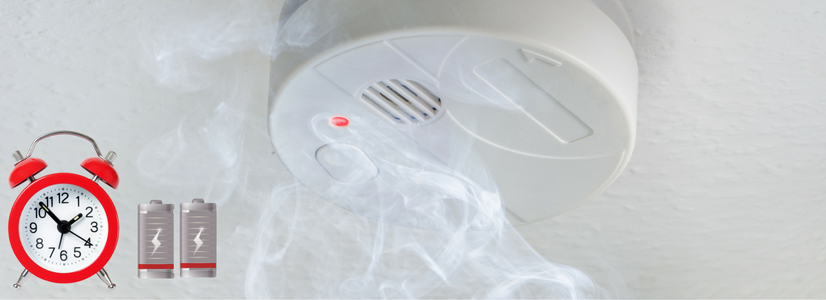Daylight Saving Time (DST) ends at 2:00am on Sunday, 6 November 2016 and begins again on Sunday, 12 March 2017.
The seasonal change is a good time to coordinate changing the batteries in your smoke alarm.
Statistics show that, on average, fire kills eight people each week in Canada. Residential property fires account for 40% of all fires and a staggering 73% of all fire deaths. (Source: Fire Prevention Canada)
BC Fire Code requirements for smoke alarms
- Every dwelling unit – new, altered, or existing – must have working smoke alarms.
- For single family dwelling buildings without a secondary suite, or for locations in a dwelling unit where smoke alarms were not required by the Building Bylaw at the time of construction or alteration of the dwelling unit, smoke alarms may be battery-operated.
- For dwelling units in multi-unit residential buildings, smoke alarms must be hard-wired to an electrical circuit.
Source: Fire Bylaw | City of Vancouver.
For full details refer to BC Fire Code Requirements for Smoke Alarms | BC Government.
It is recommended that you form a habit of changing the batteries regularly, no matter how long-lasting the manufacturer claims their batteries are. Unless your alarm uses ten year lithium batteries, the batteries should be changed annually.
For almost 30 years, Energizer has been reminding the public to change the batteries in their smoke alarms and carbon monoxide detectors when they set their clocks back through their Change Your Clock, Change Your Battery(™) program.
If you believe there’s still some life left in the batteries you’ve removed, then use them in another gadget that has nothing to do with safety.
To ensure your smoke alarm is working properly, test it monthly by pushing the test button.
Smoke detectors do have a lifespan and should be replaced every ten years. If you live in a strata or leasehold building, it is important that you follow correct procedures. Refer to your building manager or strata documents for building rules.
Enjoy that extra hour of sleep 😉






